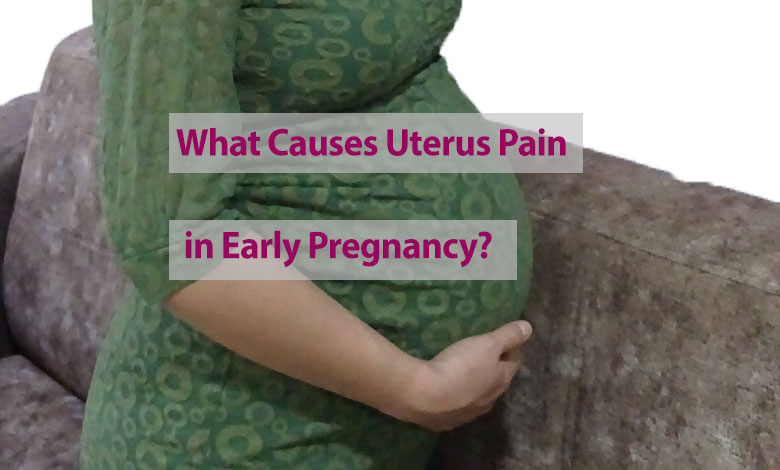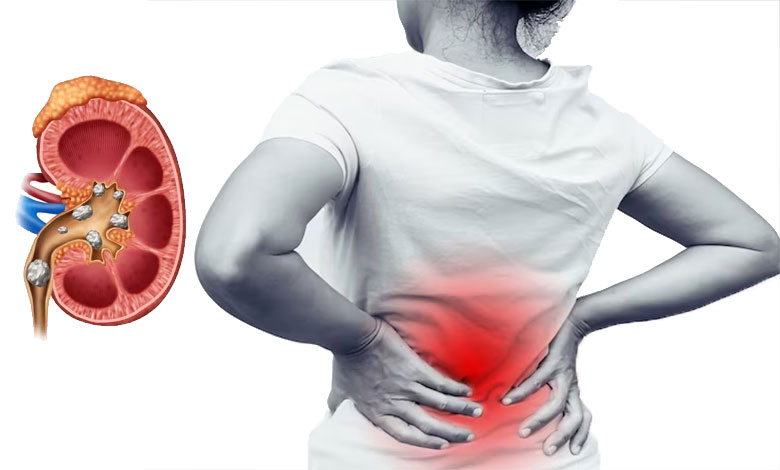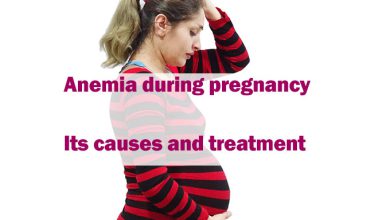What Causes Uterus Pain in Early Pregnancy?

Uterine pain is common in early pregnancy and has a number of causes. Although most of these reasons are not serious, in some cases it is necessary to visit a gynecologist and receive medical treatment. The uterus in early pregnancy is much smaller than in the second and third trimesters. Therefore, pain in this area is unlikely to be caused by the pressure of the uterus on other organs or by strain from the heavy weight on the uterus.
However, uterine pain in early pregnancy is one of the most common problems in early pregnancy. In this article, we mention the possible reasons including muscle changes and the effect of hormones.
Common causes of uterine pain in early pregnancy
The most common causes of uterine pain in early pregnancy are:
-
Cervical ligament pain
The ligament around the uterus becomes painful as the uterus contracts and the ligament has to change according to this process. This pain is usually a sharp, knife-like sensation that occurs on one or both sides of the uterus. It can happen suddenly and usually only lasts a few seconds.
In many cases, cervical ligament pain appears without warning. Some women experience more pain when they sneeze or cough or turn over and change positions in bed. When a pregnant woman goes from sitting to standing, she may also feel this pain.
-
pelvic floor pain
Many women experience pelvic floor pain during pregnancy. Symptoms can appear very early, especially in the second pregnancy. The growth and contraction of the uterus are one cause of pain, but hormonal changes also affect the behavior and sensitivity of the pelvic floor muscles.
The pain sensation in this area is variable and a woman may feel this pain near the uterus or in the bladder, vagina, back, or abdomen. Some women who experience pelvic floor pain have a history of injury to this area (such as a tear or cut during childbirth). Many women’s pelvic floor muscles are weak, and in addition to uterine pain in early pregnancy, they may also experience other symptoms such as incontinence when jumping or sneezing.
-
Cramp feeling
Many women experience cramping in early pregnancy similar to menstrual cramps. The growing uterus causes this symptom to occur with the increase in progesterone.
Some women worry that cramping is a sign of miscarriage. Severe cramping that gets worse over several hours, especially when accompanied by bleeding, can be a warning sign of a miscarriage. However, for many pregnant women, cramping is just a temporary discomfort and not a sign of a serious problem.
Related posts: How can I color my baby’s eyes during pregnancy?
Less common causes:
Among other causes of uterine pain in early pregnancy, the following can be mentioned:
Torsion of the ovary
Ovarian torsion occurs when the ovary or fallopian tube wraps around the tissue that holds it. In some women, this condition is accompanied by ovarian cysts, but the rest have no previous symptoms.
Although pregnancy does not cause ovarian torsion, it can occur during pregnancy. This could be one of the causes of uterine pain in early pregnancy. Ovarian torsion is a medical emergency because it can block blood flow and destroy the ovary.
The ovary can rupture, causing fatal bleeding. Immediate treatment is needed to save the life of the mother and the developing fetus.
Torsion of the ovary causes sudden, intense, shooting pain that will continue to get worse. This pain is not relieved or improved by massage. In some women, this pain is so severe that it causes vomiting or fainting.
-
Ectopic pregnancy
An ectopic pregnancy occurs when the egg is placed somewhere other than the uterus (usually in the fallopian tube) and develops. Factors that increase the risk of an ectopic pregnancy include:
- Pregnancy over 35 years
- History of hip surgery.
- Smoking
- History of ectopic pregnancy or pelvic inflammatory disease
- Endometriosis
- Venereal illnesses
- Artificial insemination
The fetus will not survive in this state. If the baby continues to grow, it damages organs or can lead to fatal bleeding.
If sperm are formed in the uterus, it does not move to another part. If fetal growth in the uterus has been confirmed by ultrasound, there is no need to worry about an ectopic pregnancy.
-
Other pain factors
Many physical problems, many of which are not directly related to pregnancy, cause pain in a pregnant woman’s abdomen.
Some women think the uterus is higher than its actual place in the abdomen; Therefore, other abdominal pains are confused with uterine pains.
Here are some other factors that lead to abdominal pain during pregnancy and its symptoms:
- Liver pain is caused by gallstones or other liver problems that cause pain in the upper right side of the abdomen and is sometimes accompanied by dark urine.
- Kidney pain is caused by infection or kidney stones, usually resulting in severe pain in the middle and upper back, painful urination, and fever.
- Bladder pain caused by a bladder infection causing pain in the bladder or abdomen and painful or difficult urination.
- A pregnant woman may confuse stomach pain with uterine pain. Constipation is one of the most common pregnancy problems, followed by various feelings, including sudden severe pain.

Uterine pain treatment and home remedies
The correct method of treatment depends on the cause of uterine pain in early pregnancy. Women who experience normal pain and cramping in early pregnancy, such as pain in the pelvic floor or cervical ligaments, can use the following methods:
- Bend your knees towards your chest to reduce pressure on your uterus.
- Continuous change of position
- Gently massage the sore area or adjacent muscles.
- Use of common pain relievers under the supervision of a health professional
- Consume more fiber and drink water to prevent constipation
- Sufficient rest to reduce muscle fatigue
The specialist must terminate the ectopic pregnancy by surgery or drug administration.
Surgery can treat ovarian torsion. In some cases, the surgeon can save the ovary. But in some cases, the uterus has to be removed. The diagnosis of this case is the responsibility of the gynecologist and obstetrician.
When should you see a gynecologist?
A pregnant woman should visit a specialist at least once during the first three months of pregnancy to ensure pregnancy, stability, and growth of the fetus in the uterus. This appointment is a good opportunity to talk about physical pain and cramps and ask about normal and abnormal pain.
If the following occurs, you should contact your doctor immediately:
- Severe cramps
- The pain has become more severe
- Abdominal pain with blood in the urine
- Symptoms of liver disorders such as pain in the right upper abdomen
If the following occurs, a pregnant woman should go to an emergency room right away:
- Heavy menstrual bleeding
- Sudden or stabbing pain that does not go away
- Symptoms such as fever
- Blood in urine
- Symptoms of kidney stones such as severe back pain and cramps
Why do I feel pain in my uterus during pregnancy?
How long do uterine cramps last in early pregnancy?
Does uterus pain mean miscarriage?
Is uterus pain normal in early pregnancy?
Summary
Uterine pain in early pregnancy, in many women, is a kind of temporary unpleasant sensation that periodically repeats and recedes. The pain may change as the pregnancy continues and decrease in some women. The other group notices a decrease in pain during the second trimester, but then, as the uterus grows in the last trimester, the pain becomes intense again.
